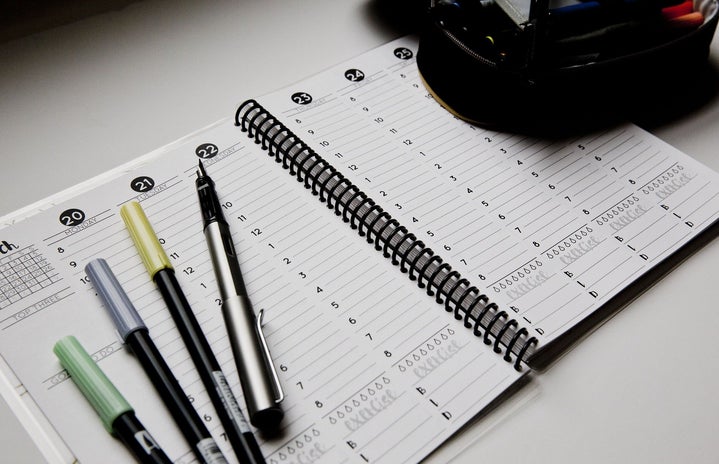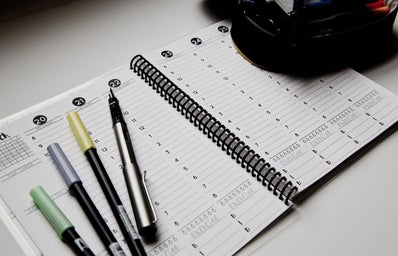Self-lovin’ and self-care during exams doesn’t have to be time-consuming and tedious. Based on this belief, I decided to meditate for twenty minutes every evening for a week. I’ve heard an abundance of good things about meditation, but I tried not to meditate with grand expectations. There are tons of different meditation techniques. I wasn’t sure where to begin, so of course, I relied on my trusty advisor, Google. I decided that I’d try out a few different techniques, instead of sticking to one technique for the whole week. By trying different techniques, I was able to determine which techniques worked best for me, and which didn’t.
On the first day, I tried Japa meditation. Japa beads are a string of 108 beads used in meditation to keep count of how many rounds you’ve recited a mantra. A mantra is the repetition of a phrase, sentence, statement or word. While chanting the mantra, I held onto one bead and when the mantra was completed, I moved onto the next bead and the next until my alarm announced that 20 minutes had gone by (usually you’re supposed to meditate until you reach the 108th bead). By the tenth bead, I found myself wishing the alarm would go off. I didn’t try this technique again. As a beginner, I found it hard to concentrate on the mantra for more than a round or two. Japa meditation is a bhakti yoga practice, normally practised by those who follow the Hare Krsna philosophy. The aim of chanting the Mahã mantra during Japa meditation is to evoke spiritual realization. For more information, follow this link: http://www.krishna.com/how-chant-beads. Japa meditation cannot be understood without its spiritual context.
On the second day, I listened to a guided meditation by Vishen Lakhiani. It’s called “The Six Phase Meditation”. In just twenty minutes, I was guided through different steps, like forgiveness, gratitude and visualizing my perfect day. Practising gratitude has scientifically been proven to increase dopamine and serotonin levels (https://tier1performance.com/2017/11/16/what-neuroscience-studies-say-about-gratitude/). Practising gratitude helped me see exams from a different perspective. Instead of focusing on the mountains of work before me, I instead tried to focus on how grateful I am that holidays are around the corner. Here’s the link to the meditation if you feel like trying it out: https://www.youtube.com/watch?v=mvOFrFAvrb4.
Meditation emphasizes the importance of the breath. Focusing on the breath helps you to stay present. On day 3, I tried to focus on my breathing. I took a few deep breaths, which, and as simple as it sounds, made me feel way calmer than I had felt a few minutes before. “Breathing slowly and mindfully activates the hypothalamus, connected to the pituitary gland in the brain, to send out neurohormones that inhibit stress-producing hormones and trigger a relaxation response in the body.” For more info, check out this article: https://www.livestrong.com/article/136646-why-does-deep-breathing-calm-you-down/. My thoughts strayed a few times (or more than a few times) during this exercise.
The mindfulness breathing exercise was enjoyable, so I tried it again for the rest of the week. I didn’t notice a significant improvement in my concentration over the next few days, which was frustrating, to say the least. On the day before an exam and on the day itself, my stress levels peaked. I then tried to focus on my breathing as I was getting ready in the morning, in the Jammie, and even in the moments before the question paper was handed out. Mindful breathing meditation can be practised almost anywhere, at any time – even if it’s just for a minute to calm your nerves. I enjoyed the fact that meditation became part of my nightly routine. I looked forward to meditating at night before bed. Usually, I experience troubled sleep the night before my exam, but when I started meditating, I slept peacefully. I also fell asleep faster after I meditated, because my thoughts weren’t racing as much. I noticed that I felt more revitalized when I woke up in the mornings. Exam anxiety can be ameliorated through many means – meditation is only one of these means. Go for a walk in nature or play with a cat. Whatever works for you!


